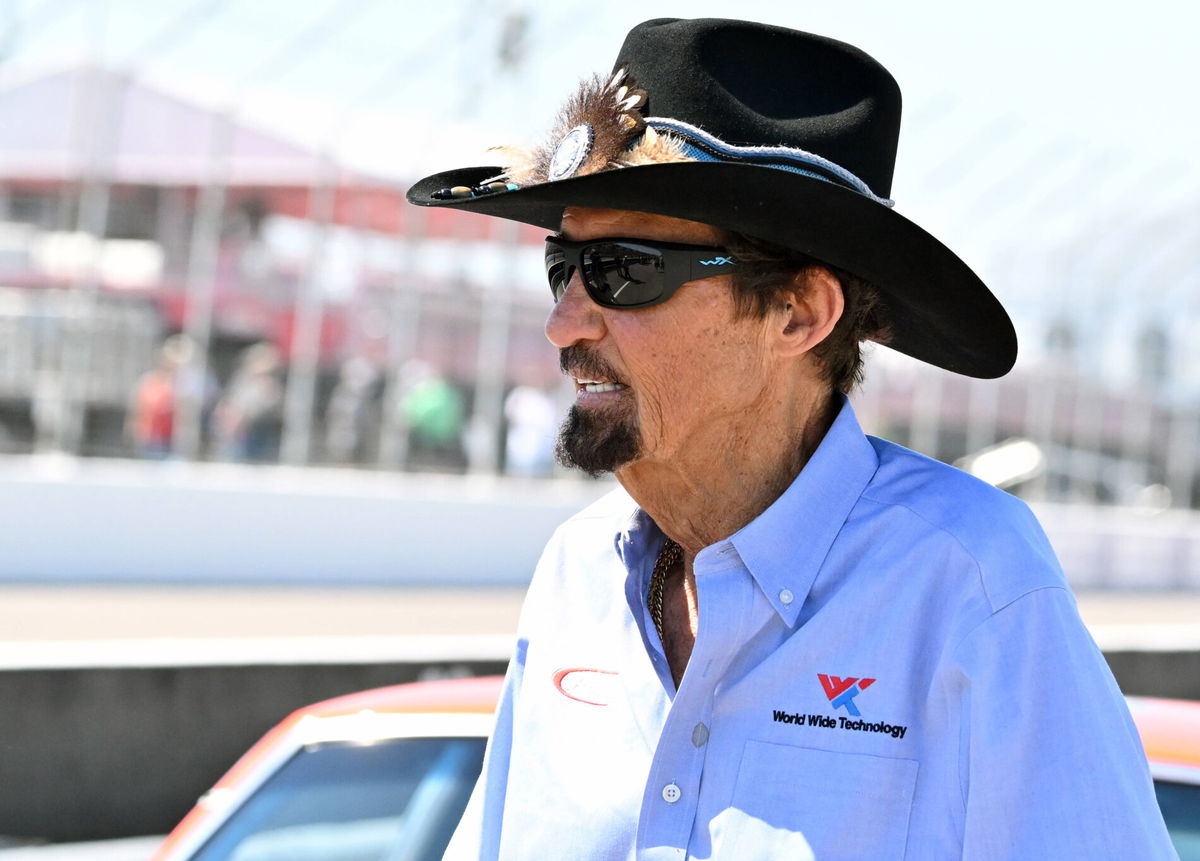
Imago
MADISON, IL – Richard Petty as seen after driving the inaugural lap before practice for the NASCAR, Motorsport, USA Cup Series Inaugural Enjoy Illinois 300 presented by TicketSmarter on June 03, 2022, at World Wide Technology Raceway, Madison, IL. Photo by Keith Gillett/Icon Sportswire, AUTO: JUN 03 NASCAR Cup Series Enjoy Illinois 300 Presented by TicketSmarter Icon220600306

Imago
MADISON, IL – Richard Petty as seen after driving the inaugural lap before practice for the NASCAR, Motorsport, USA Cup Series Inaugural Enjoy Illinois 300 presented by TicketSmarter on June 03, 2022, at World Wide Technology Raceway, Madison, IL. Photo by Keith Gillett/Icon Sportswire, AUTO: JUN 03 NASCAR Cup Series Enjoy Illinois 300 Presented by TicketSmarter Icon220600306
In this age of NASCAR, stage points speak more than wins. William Byron won the regular season championship, beating Chase Elliott with his win in Iowa. The No. 24 Chevrolet driver led the points all through the season, despite his teammate, Kyle Larson, owning more victories. Similarly, Chase Briscoe’s recent victory in Darlington was placed next to his other stats – he had a 34.7 average points per race and a total of 4 stage wins this season. This deflection from the real point bothers Richard Petty.
Watch What’s Trending Now!
‘The King’ of the sport is a 200-time Cup Series race winner and 7-time champion. Across his star-studded career, Richard Petty was focused entirely on the end goal – to start a race and win it. That is why NASCAR’s novel methods make the legend scratch his head, as drivers may lose sight of the target.
Richard Petty throws shade at the lack of originality
When former NASCAR CEO Brian France introduced the elimination format, he had an objective. He wanted to create ‘Game 7′ moments in NASCAR, akin to those seen in other sports like the NFL or the NBA. Then, the Next-Gen car was modeled on Supercars’ racing models, and with an adaptability to hybrid engines used globally in other motorsports. Similarly, NASCAR introduced stage racing in 2017, wherein points are awarded to the top 10 drivers at the end of stages one and two. Even if somebody hits the wall early or makes some other silly error, but decides not to pit at the end of the stage, they win more points than anybody else. Additionally, stage winners can end up accruing more points than a runner-up.
This situation is mind-boggling for drivers who are here to just win a race. That is the mindset that Richard Petty has harbored throughout his life, and that is what he emphasized in a recent interview with The Athletic. He said, “When they give points for leading different (stages) in the race and they give points for all this other stuff, that’s a bunch of crap, OK? If you’re sitting there and watching a football game, and the team has been behind the whole game, and they kick a field goal and they win the game, the guys who lost got a zero. That should be the same way in NASCAR racing. I don’t care if you lead 499 laps of a 500-lap race — if you get beat, then you’re not the winner, and you shouldn’t have any (extra) points.”
Not surprisingly, @therichardpetty isn’t a fan of playoffs or stages.
“They’re trying to keep up with other sports. They’re trying to come up with new ideas. And so far, I haven’t seen any of them really working.”https://t.co/aZdNlsvefg
— Jeff Gluck (@jeff_gluck) September 4, 2025
Richard Petty learned his career goal the hard way. In his very first race in July 1958, Petty finished 17th, not being able to finish the Canadian event. He could not because his father, Lee Petty, spun him out en route to the win. Such was the sharp goal of the Petty patriarch, for whom racing was very much a business, particularly in the sport’s early years. A win meant more money to fuel the family’s racing operation, and no one—not even his son—would stand in the way. This fueled Petty’s personal drive to leave a trailblazing mark in NASCAR’s history, picking up 200 race victories.
NASCAR’s stage racing is meant to thrill fans, and so is the present digital age. The latter also bothers Richard Petty to the core.
When our focus is scattered
In an age of AI and screen addiction, attention span is getting shorter. This is a result of exposure to constant digital stimuli from social media and short-form content. The impact of this is visible in NASCAR as well. In cutting down a race into stages, NASCAR seeks to satisfy its fans in short periods of time. During the four-round playoffs, fans are constantly kept on the edge to see which driver will be eliminated next. The championship narrative is not decided until the final race. Hence, fans can never guess who will be the final winner until the last lap. This has made things difficult to sit through 3-4 hour-long races without having constant sources of distraction. And that is what Richard Petty worries about.
Talking to The Athletic, Richard Petty shared his concerns about the evolving times. He said, “As the new generation has come through, everything has got to be instantaneous. We used to have fans come watch us run a 500-mile race that would take five hours. And they’d come five hours before the race. Now, and even myself, I find my attention span is so much shorter. With kids growing up today, with all the computers and stuff, they want instant results. They’re not real willing to sit there for three or four hours to see who wins the ballgame or the race.”
There is evidently a huge gap between NASCAR’s present age and Richard Petty’s time. The sport has changed with the times. Hopefully, it will change for the good of the racers and the fans.








